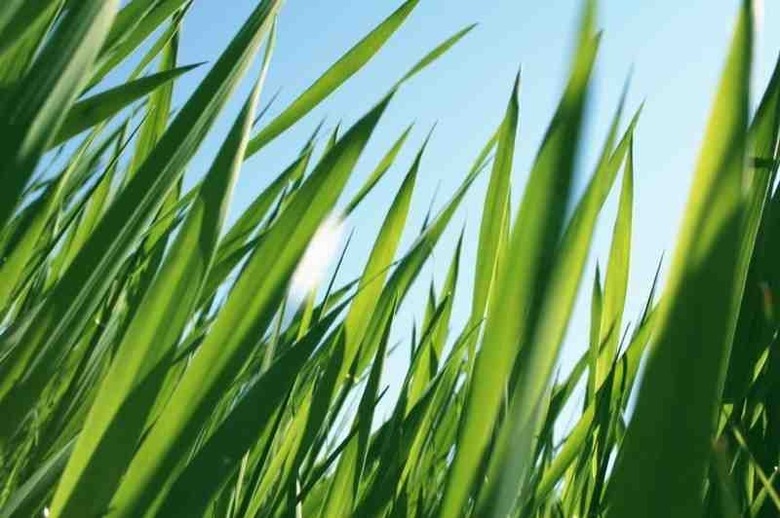How To Grow Grass Over The Septic Tank
Things Needed
- Grass seed
- Water
Septic tanks are a feature of many homes. Some regulations now require giant mounds to be created to house the septic tank and fulfill all the necessary regulations. What do you do with giant mound of dirt over a septic tank? Plant grass, of course! Believe it or not, it is possible to grow over a septic tank. In fact, it will do so well that it will usually grow better than the grass in the rest of the yard because the area over the septic tank is warmer. Occasionally you may have grass die-off in the area, but that is usually due to a fungus and easily cleared up.
- Septic tanks are a feature of many homes.
- Occasionally you may have grass die-off in the area, but that is usually due to a fungus and easily cleared up.
Step 1
Make sure that you have at least 10 to12 inches of soil over the septic tank. Grass growing over the septic tank needs deep soil to get the nutrients and space it needs to put down roots. Grass failure often results in soil that is too shallow. This is especially important in soil on septic mounds because the nutrients tend to wash downhill away over time, resulting in stunted grass growth.
Step 2
Add soil if necessary to area over septic tank.
Step 3
Rake the area, if necessary. If you're not adding soil to the area and the area has not been disturbed for a while, rake the area to create furrows for the grass seed to gain "purchase" in the soil and grow.
- Make sure that you have at least 10 to12 inches of soil over the septic tank.
- This is especially important in soil on septic mounds because the nutrients tend to wash downhill away over time, resulting in stunted grass growth.
Step 4
Plant grass seed. Grass is planted by spreading/broadcasting seed over the area. Use a hand held spreader or push spreader to distribute your seed evenly.
Step 5
Fertilize if desired. Some people used fertilizers, but there is evidence that many of these fertilizers are harmful to the environment (water supply), animals and children. Animal manure, such as horse and cow, are great natural fertilizers.
Step 6
Stay off of the area until the grass begins to grow. Give the seedlings a chance to do their job and grow without you, pets or kids tramping over the area.
- Grass is planted by spreading/broadcasting seed over the area.
- Some people used fertilizers, but there is evidence that many of these fertilizers are harmful to the environment (water supply), animals and children.
Step 7
Water the area regularly for several weeks until grass begins to grow. Once the grass has reached a 1 to 2 inch height, cut back on the watering and let it get used to normal environmental conditions. Water only weekly or less from then on, depending on rainfall.
Step 8
Watch for any die-off. If, after your lawn is established, you have any die-off over the septic tank, you will need to repeat step 1 (add soil) and add nutrients to help the soil. This usually happens due to extensive rain and is called brown patch fungus. It is easily remedied by making sure you have enough soil depth and making a horticultural corn meal juice. Take 1 cup of horticultural corn meal (available at your garden center) and add it to 5 gallons of water. Let the mixture sit for at least 30 minutes and pour the juice over the area. Wait at least a week, then plant more grass or sod over the area.
- Water the area regularly for several weeks until grass begins to grow.
- It is easily remedied by making sure you have enough soil depth and making a horticultural corn meal juice.
Tip
You can get manure locally from farms (call and check) or you can get sterilized manure from your local gardening center. It will stink for a few days. Then the smell will vanish and your lawn will be healthy and happy.
Warning
Don't mess with your septic tank, it could cost you dearly. Only plant shallow plants, like vegetables and grass over your septic tank. Never grow anything on or nearby your septic tank like trees or woody shrubs, they can hurt your septic system.
